For $35 a night, visitors are invited to pursue a zero-waste lifestyle in an eco-friendly cabin prototype on an idyllic Finnish island.
Created by Helsinki–based designer Robin Falck for energy company Neste’s Journey to Zero campaign, the Nolla Cabin uses a back-to-nature approach to inspire guests to adopt a minimal environmental footprint.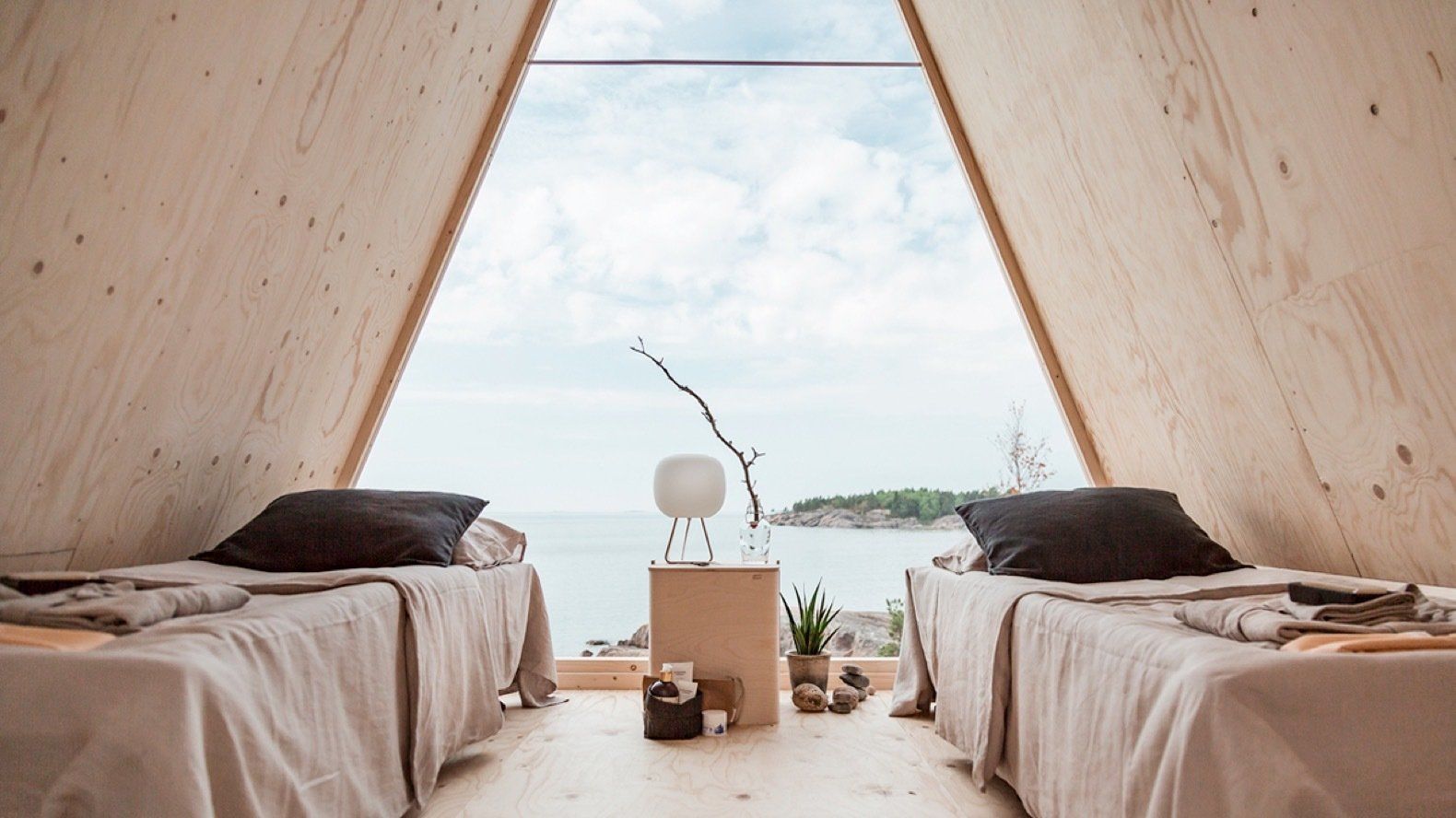
Overlooking stunning views of the archipelago, the one-bedroom building is furnished with two camping beds, a small cooking nook, and other locally procured sustainable furnishings.
Building off of his previous Nido Cabin design, Robin Falck developed the Nolla Cabin prototype in the span of five to six weeks. The cabin was prefabricated from locally sourced Kerto LVL plywood at the Protos Demos workshop in one week, and then swiftly installed at Vallisaari with minimal landscape impact. 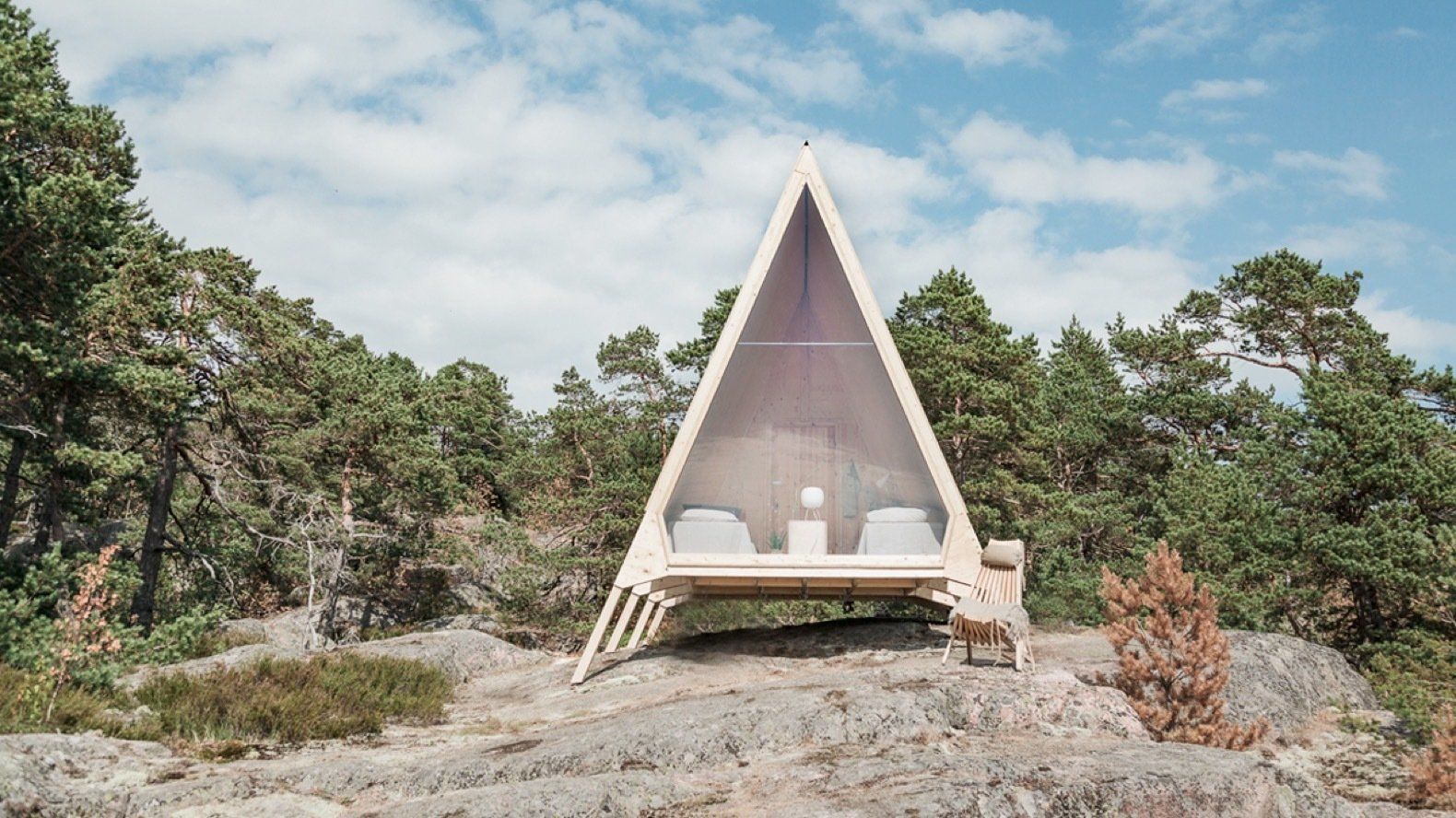
The cabin's "paws" elevate the structure, making it easy to transport and assemble. This also helps to not leave a trace on the landscape. 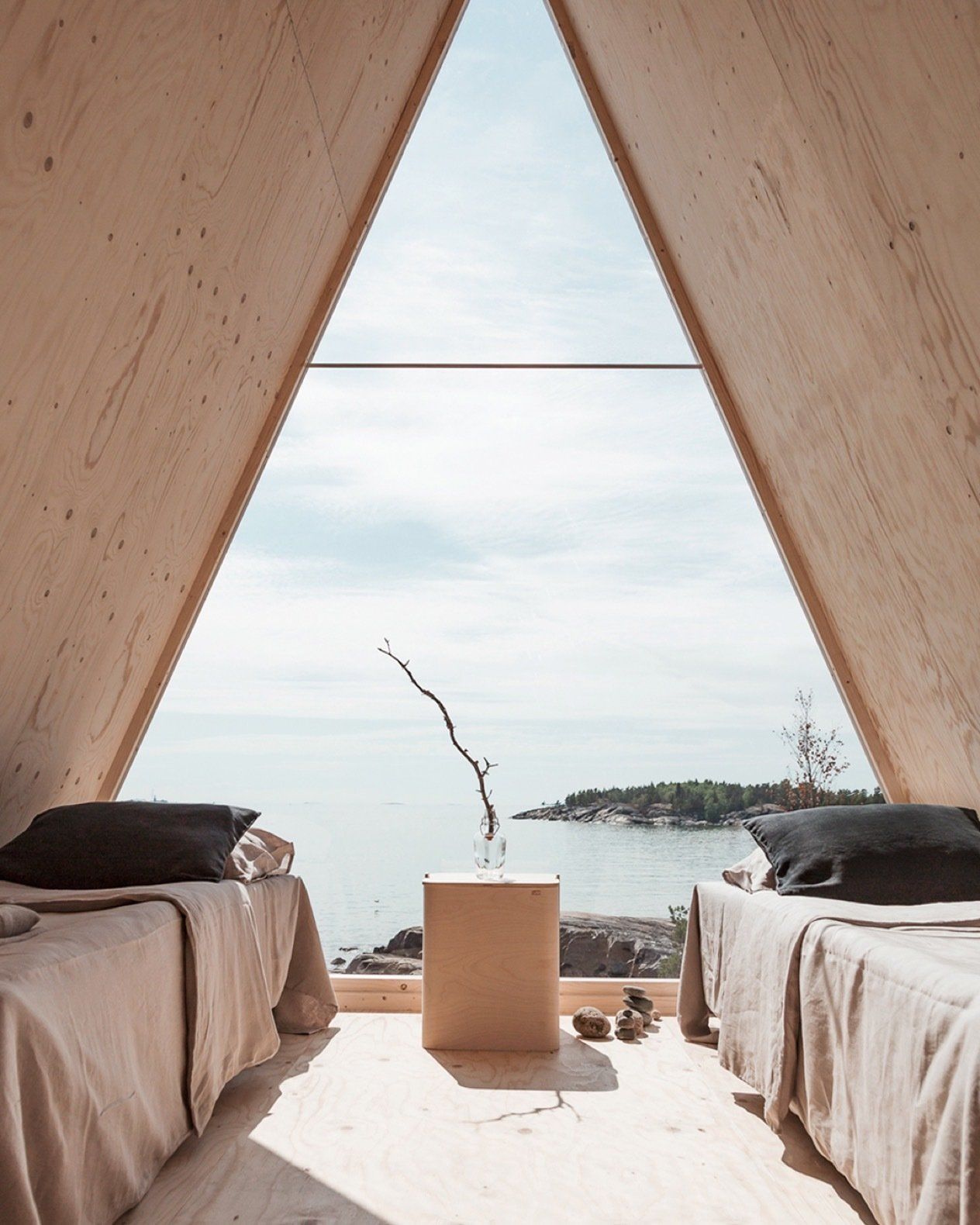
The triangular window is made from polycarbonate, which was chosen for safety reasons.
"The cabin represents an alternative way of living, without any of the unnecessary commodities we consume these days," explains Falck. "It represents an approach to living where the focus is more on what lays on the outside of a dwelling, rather than within."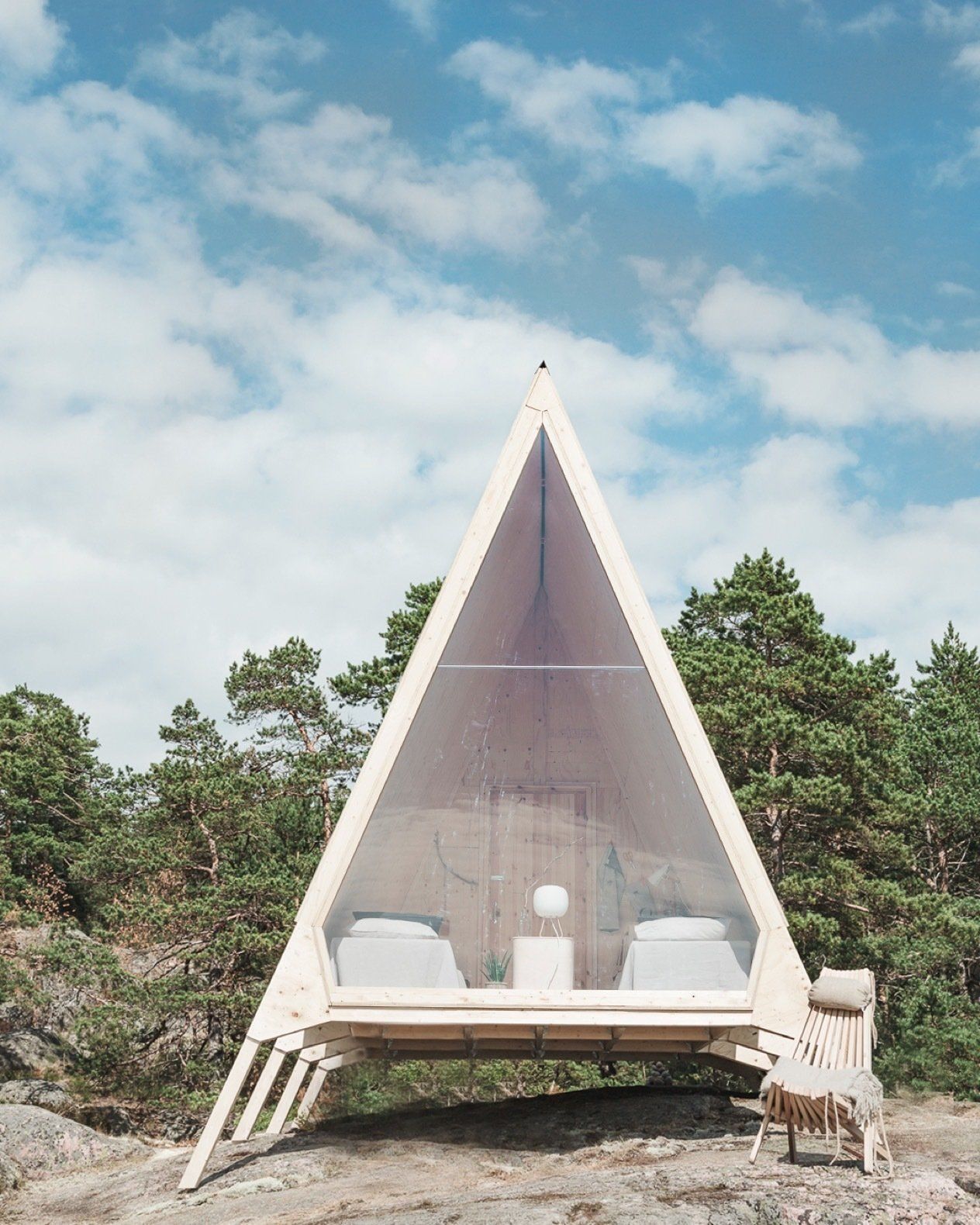
Nolla Cabin can be accessed via a 20-minute boat ride from the Helsinki market square.
True to its name-Nolla means ‘zero’ in Finnish-the cabin was built and furnished using only sustainable materials. The unit's tiny 97-square-foot size and placement on a private lot meant the firm did not need a construction permit.
Falck continues: "Nolla is easy to construct, dissemble, and transport. Because moving and constructing it can be accomplished by only a few people, no heavy machinery is needed. The 'paws' enable it to be erected in any terrain without permanent groundwork, so it can be used for low-impact living in delicate surroundings, as we have done in Vallisaari." 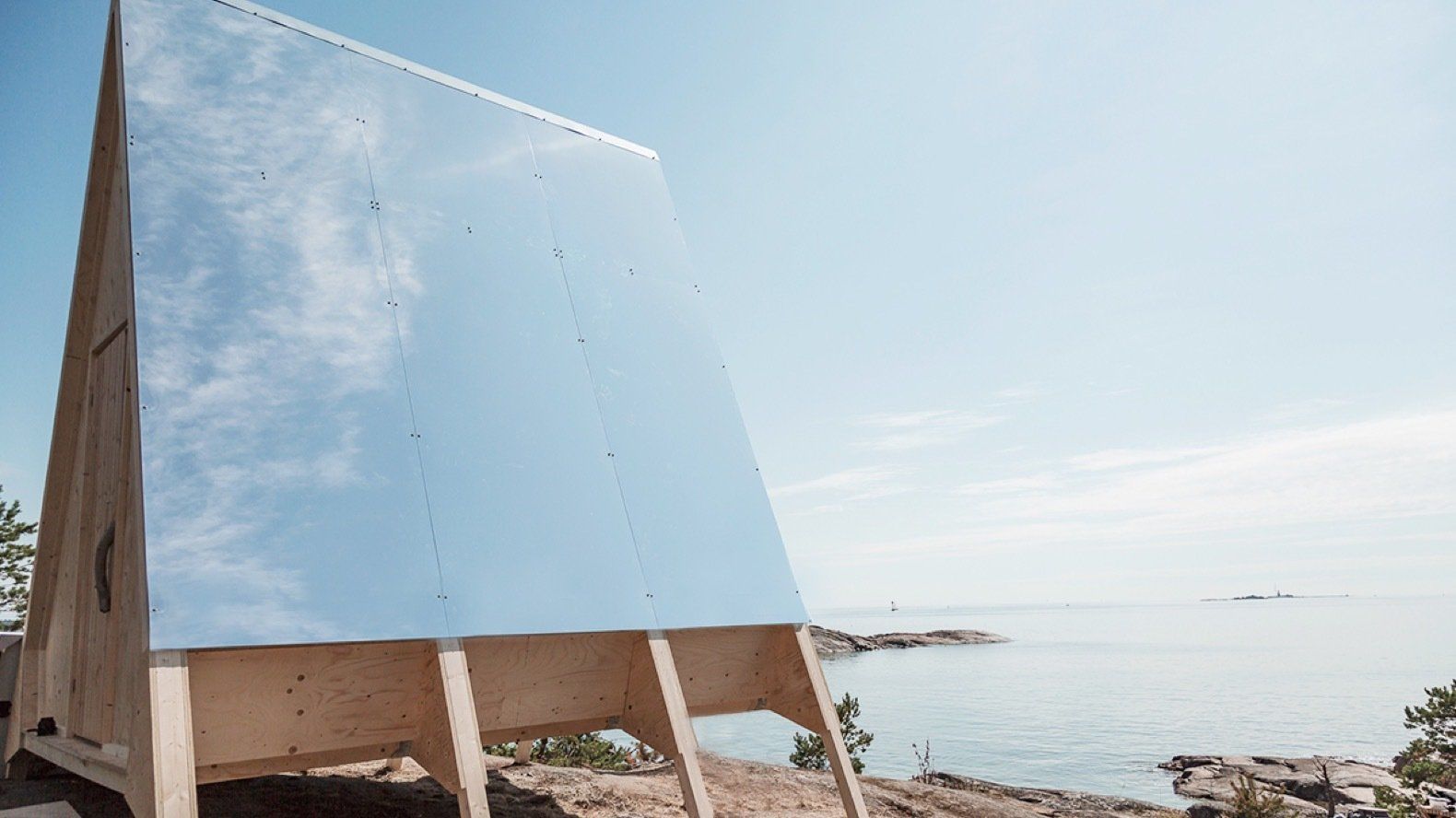
Mirror panels cover one side of the roof to reflect heat and prevent the cabin from overheating.
Powered with Fortum rooftop solar panels and Neste MY Renewable Diesel, the cabin operates completely off the grid. No running water means guests will need to bathe in the sea and use ecological dry toilets, located a quarter-mile walk away. Fresh water can be found a half-mile walk away at the Vallisaari guest port.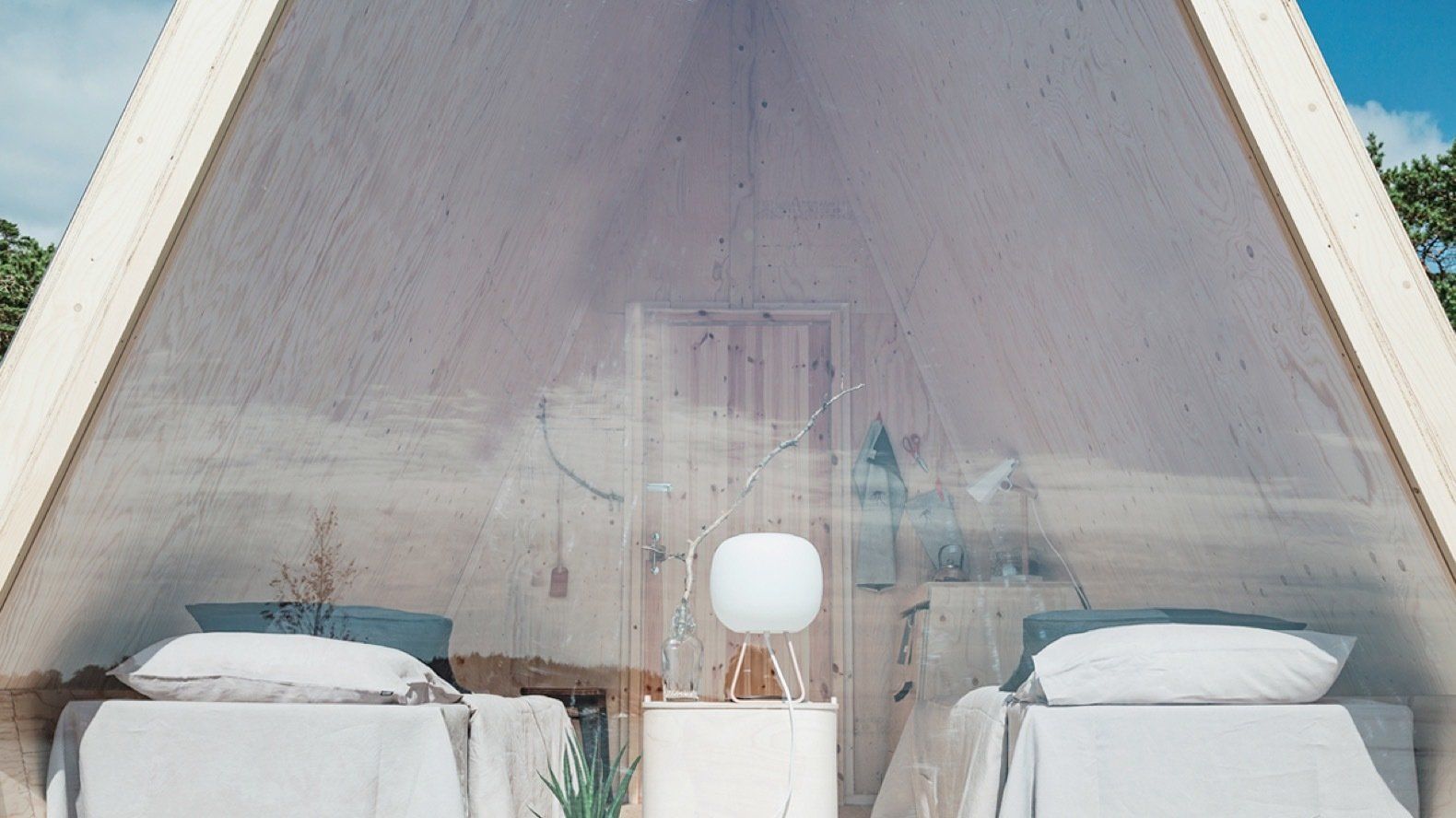
The Wallas stove, seen next to the entrance, runs on Neste MY Renewable Diesel. The Fiskars kettle that sits atop the stove was crafted from at least 70 percent recycled content that includes old kettles and pans.
Although the cabin was made available to rent on AirBnB for the month of September, it became completely booked within a few hours of listing.
Positively surprised by the cabin’s popularity, Neste has shared that they are looking into possibilities for making the cabin available for rental again, with next phases for the cabin(s) to be announced soon. 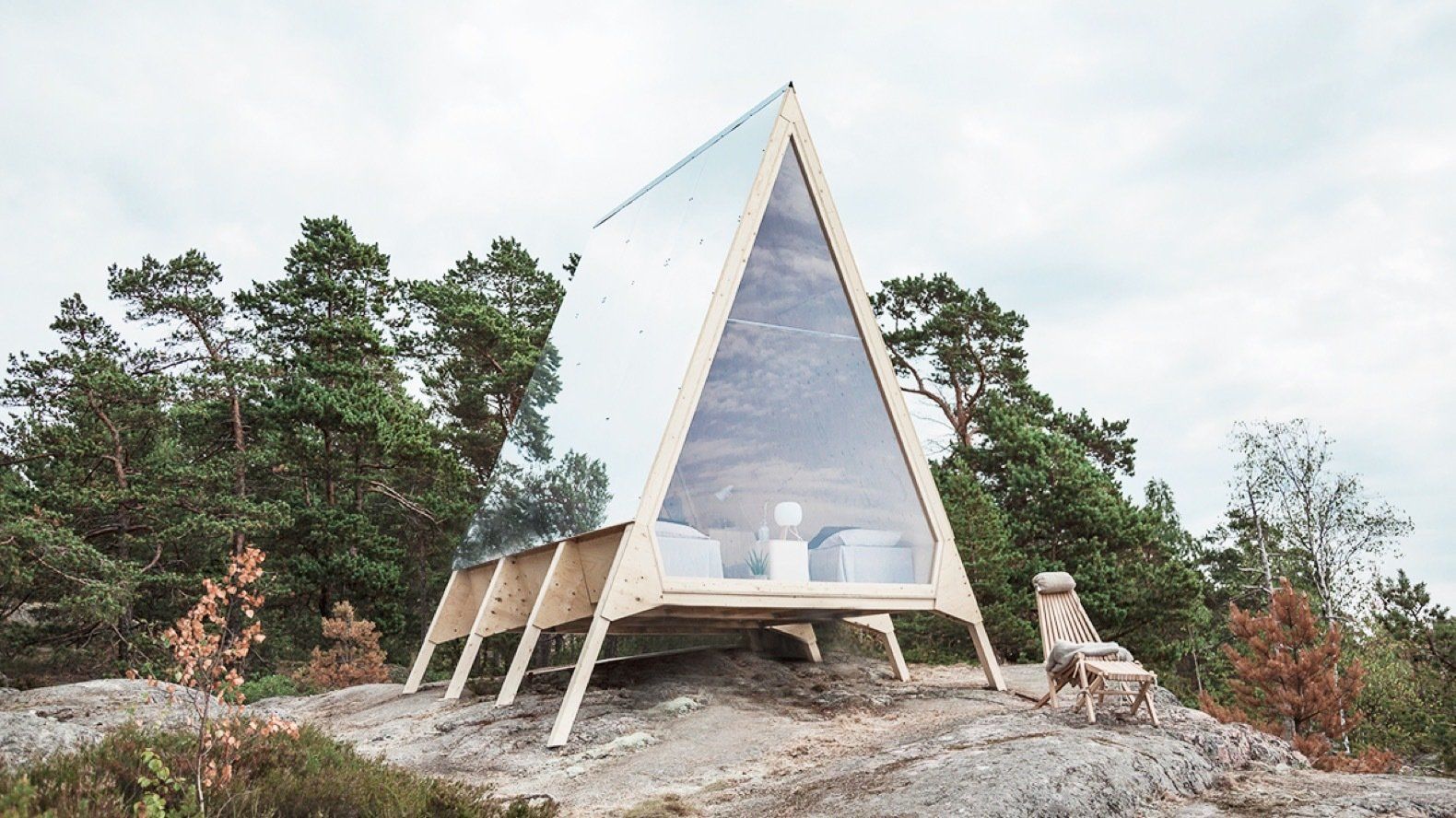
The Nolla Cabin was primarily built from Kerto LVL, a lightweight and durable Finnish plywood. It was then fastened together with screws. 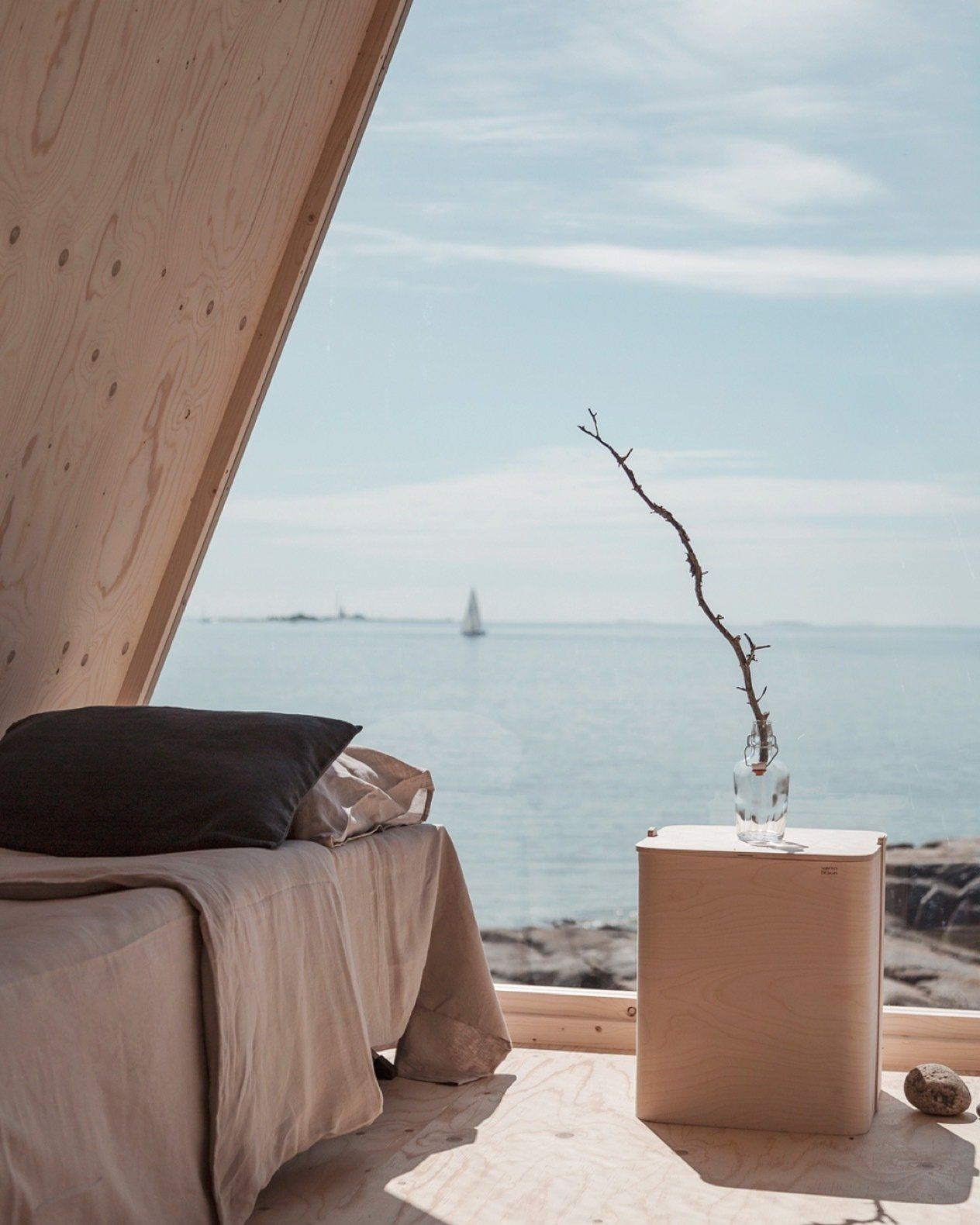
The Verso Design’s Koppa Big Box High container is used as a nightstand, and was handmade in Finland from Finnish birch.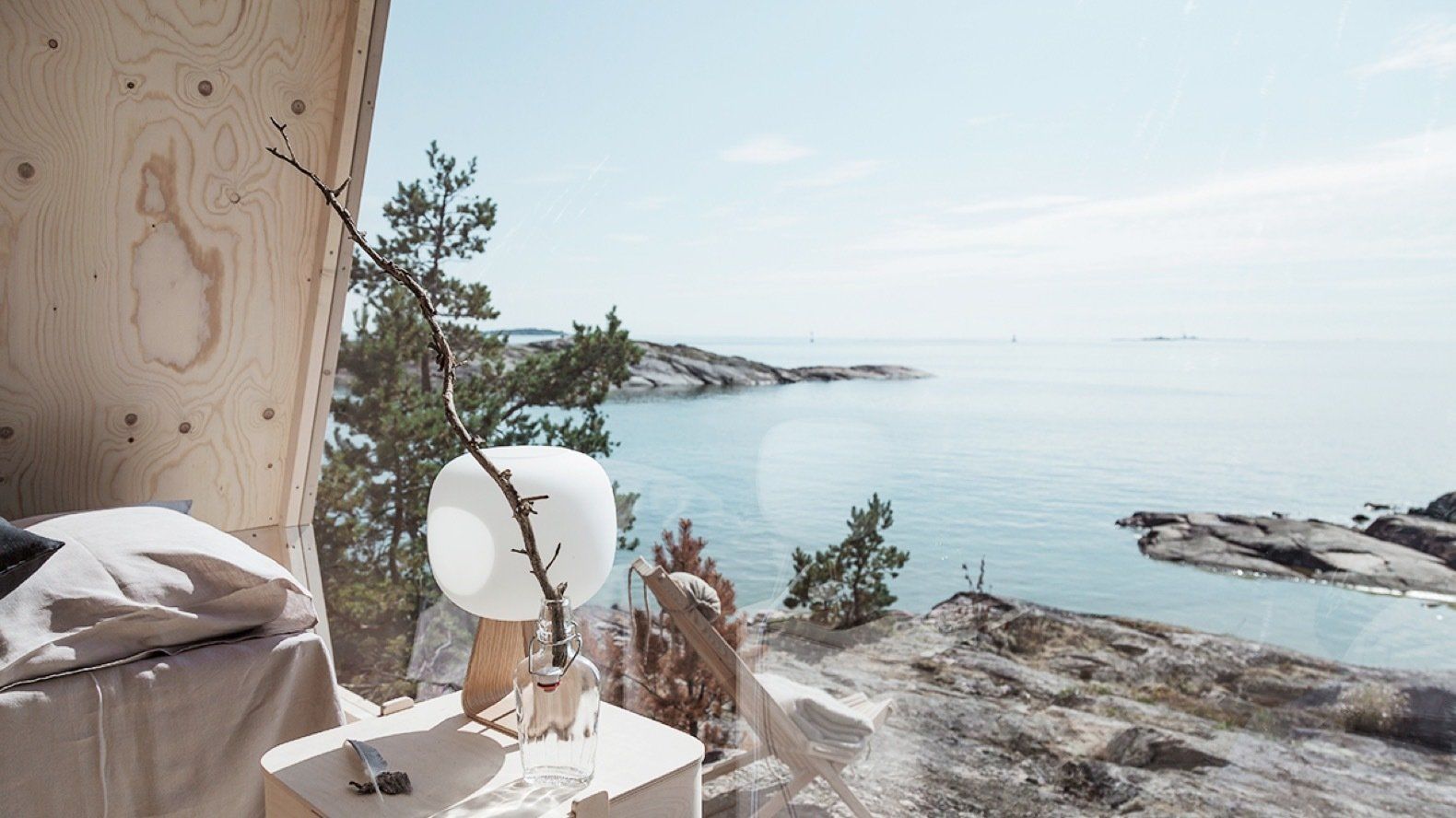
The cabin captures the iconic Finnish aesthetic, which is defined by modern minimalism. Recyclability and sustainability were among the deciding factors behind the selection in furnishings. 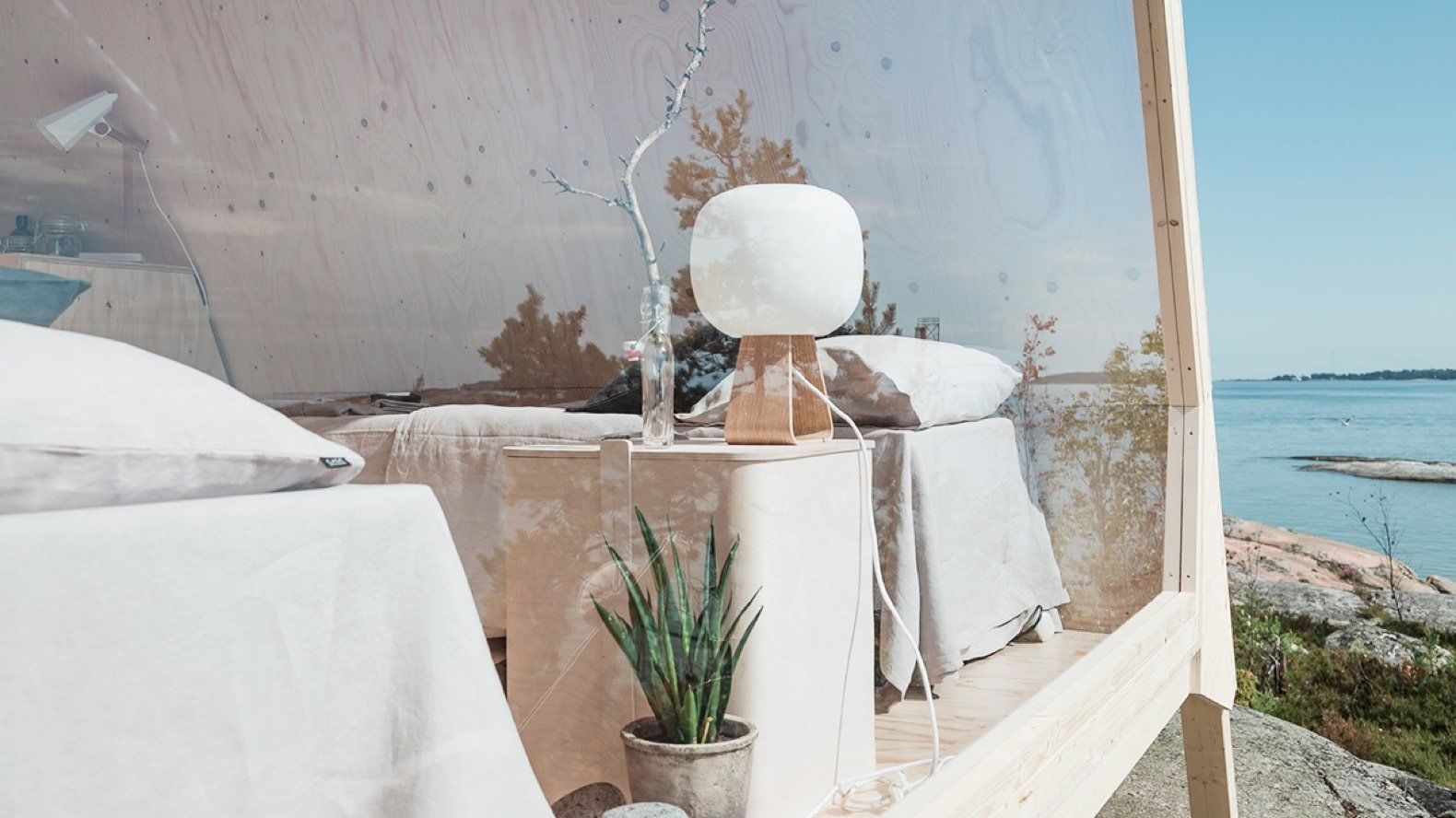
All of the cabin's energy needs run off of renewable sources. Solar panels, installed on one side of the roof, power the structure's electricity.

Tropical Boho Homes With Beautiful Vignettes & Vistas
Two tropical boho home designs, featuring swimming pools, cozy lighting schemes, interior archways, natural accents, and beautiful decor vignettes.


![A Tranquil Jungle House That Incorporates Japanese Ethos [Video]](https://asean2.ainewslabs.com/images/22/08/b-2ennetkmmnn_t.jpg)









